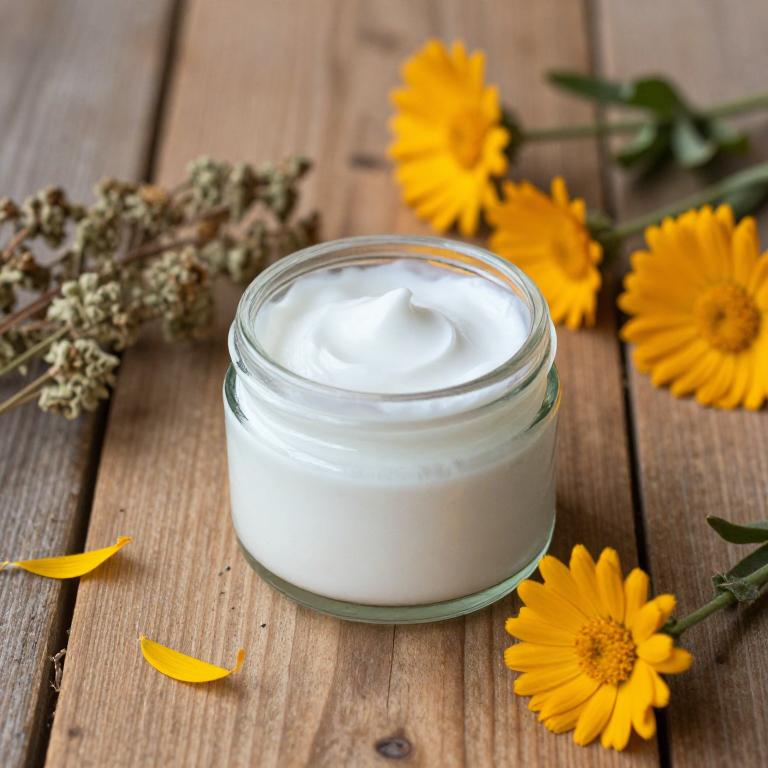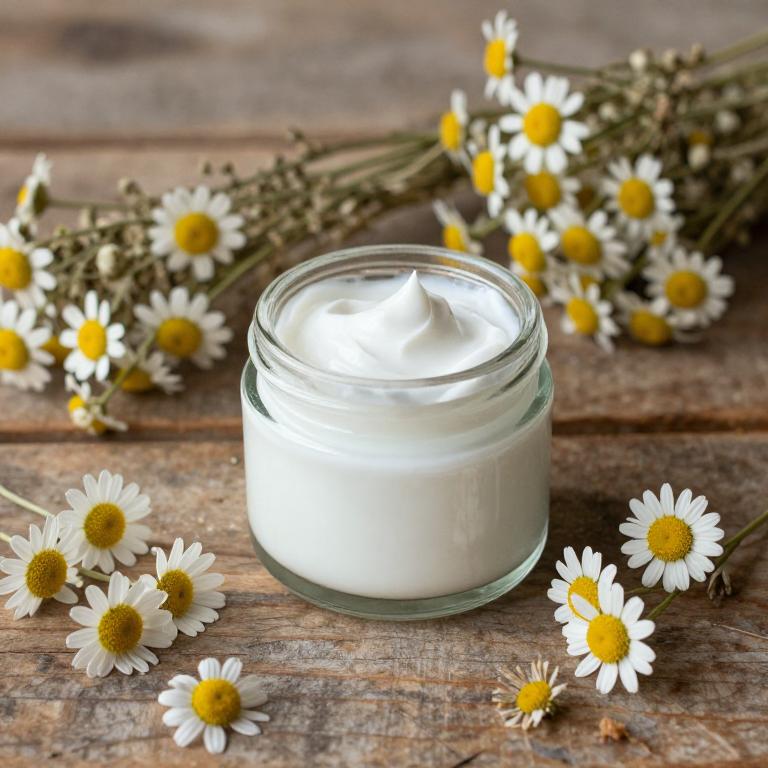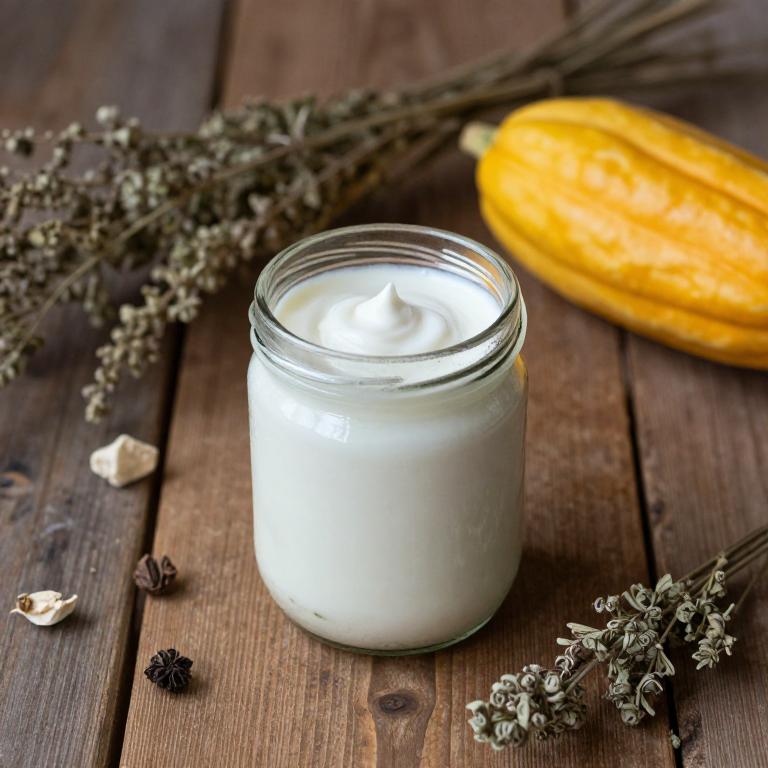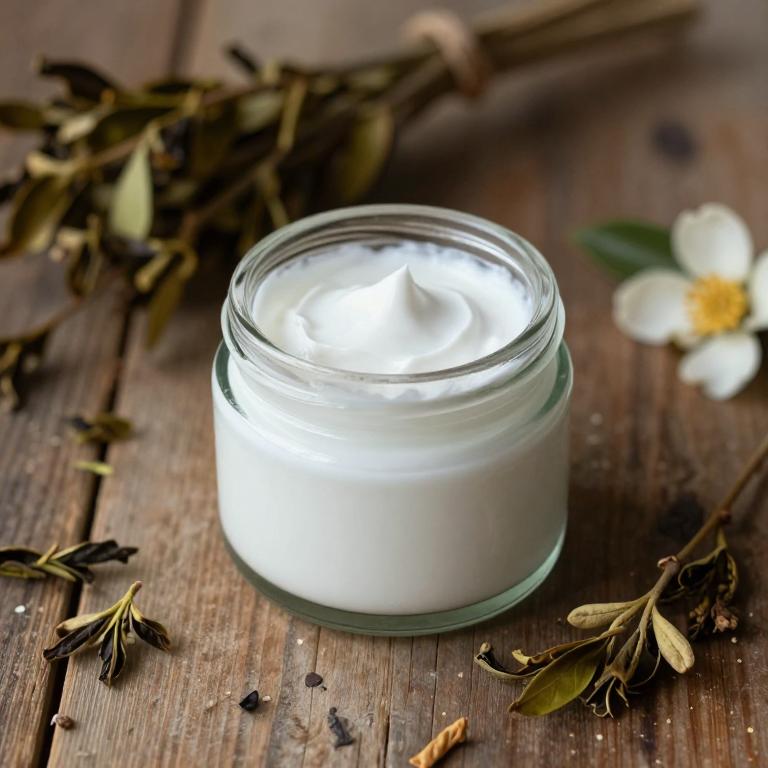10 Best Herbal Creams For Dermatitis

Herbal creams for dermatitis are natural topical treatments that incorporate plant-based ingredients known for their soothing and anti-inflammatory properties.
These creams often contain ingredients such as calendula, chamomile, aloe vera, and licorice root, which can help reduce redness, irritation, and itching associated with various types of dermatitis. Unlike conventional corticosteroid creams, herbal alternatives are generally considered safer for long-term use and may reduce the risk of side effects. They are particularly popular among individuals seeking holistic and gentle skincare solutions.
However, it is important to consult a healthcare provider to ensure these creams are suitable for specific skin conditions and to avoid any potential allergic reactions.
Table of Contents
- 1. Aloe vera (Aloe barbadensis)
- 2. Marigold (Calendula officinalis)
- 3. St. john's wort (Hypericum perforatum)
- 4. Chamomile (Matricaria chamomilla)
- 5. Stinging nettle (Urtica dioica)
- 6. Dog rose (Rosa canina)
- 7. Pumpkin (Cucurbita pepo)
- 8. English lavender (Lavandula angustifolia)
- 9. Camellia (Camellia sinensis)
- 10. Ginger (Zingiber officinale)
1. Aloe vera (Aloe barbadensis)

Aloe barbadensis, commonly known as aloe vera, is widely used in herbal creams for the treatment of dermatitis due to its soothing and anti-inflammatory properties.
These creams often contain a concentrated form of aloe gel, which helps to hydrate and repair the skin barrier, reducing redness and irritation. The natural compounds in aloe vera, such as polysaccharides and antioxidants, promote skin healing and may alleviate symptoms associated with eczema and contact dermatitis. Many people find that using aloe-based creams provides relief without the harsh side effects of traditional corticosteroid treatments.
However, it is important to consult a healthcare professional before using aloe vera products, especially for severe or chronic dermatitis cases.
2. Marigold (Calendula officinalis)

Calendula officinalis, commonly known as pot marigold, is a popular herbal ingredient used in the formulation of creams for the treatment of dermatitis.
These creams often contain calendula extract, which is known for its anti-inflammatory, antiseptic, and wound-healing properties. The active compounds in calendula, such as flavonoids and triterpenes, help reduce redness, itching, and irritation associated with various types of dermatitis. Many people with sensitive or eczematous skin find calendula-based creams to be a gentle and effective alternative to conventional corticosteroid treatments.
When used as part of a comprehensive skincare routine, calendula officinalis herbal creams can provide soothing relief and promote the healing of inflamed skin.
3. St. john's wort (Hypericum perforatum)

Hypericum perforatum, commonly known as St. John's wort, is a herbal remedy that has been traditionally used for its anti-inflammatory and antimicrobial properties.
When formulated into creams, it can be an effective topical treatment for various types of dermatitis, including eczema and contact dermatitis. The active compounds in hypericum perforatum, such as hypericin and flavonoids, help reduce skin inflammation and promote healing. These creams are often preferred by individuals seeking natural alternatives to conventional corticosteroid treatments.
However, it is important to consult a healthcare professional before use, as St. John's wort may interact with certain medications.
4. Chamomile (Matricaria chamomilla)

Matricaria chamomilla, commonly known as chamomile, is a popular herbal ingredient used in the formulation of creams for the treatment of dermatitis.
These creams often contain chamomile extract, which is known for its anti-inflammatory, antimicrobial, and soothing properties. The active compounds in chamomile, such as bisabolol and chamazulene, help reduce redness, irritation, and itching associated with various forms of dermatitis. Chamomile-based creams are particularly beneficial for sensitive skin and are often recommended as a gentle alternative to conventional topical treatments.
When used consistently, these herbal creams can provide relief and support the healing process in individuals suffering from eczema or contact dermatitis.
5. Stinging nettle (Urtica dioica)

Urtica dioica, commonly known as stinging nettle, is a plant that has been traditionally used in herbal medicine for its anti-inflammatory and soothing properties.
Urtica dioica herbal creams are formulated with extracts from the leaves of this plant, which contain compounds like histamine, formic acid, and various flavonoids. These creams are often used to alleviate symptoms of dermatitis, such as redness, itching, and inflammation, due to their natural antihistaminic and anti-inflammatory effects. The topical application of these creams can help reduce irritation and promote skin healing without the side effects associated with some synthetic treatments.
However, individuals with sensitive skin should perform a patch test before using urtica dioica creams to ensure they do not cause an adverse reaction.
6. Dog rose (Rosa canina)

Rosa canina, also known as dog rose, is a traditional herbal ingredient commonly used in the formulation of herbal creams for the treatment of dermatitis.
These creams are often enriched with rosehip oil, which is rich in essential fatty acids and antioxidants, helping to nourish and repair damaged skin. The anti-inflammatory properties of Rosa canina make it effective in reducing redness, irritation, and inflammation associated with various types of dermatitis. Many users report improved skin texture and reduced dryness after consistent use of these natural creams.
Due to their gentle and soothing nature, Rosa canina herbal creams are particularly suitable for sensitive skin and can be used as part of a holistic approach to managing dermatitis.
7. Pumpkin (Cucurbita pepo)

Cucurbita pepo, commonly known as the pumpkin plant, has been traditionally used in herbal medicine for its anti-inflammatory and soothing properties.
Extracts from Cucurbita pepo are often incorporated into herbal creams to treat dermatitis due to their ability to reduce redness, itching, and irritation. These creams may contain compounds such as beta-carotene and antioxidants that help protect and repair the skin barrier. The use of Cucurbita pepo in dermatological treatments is supported by its natural moisturizing effects and gentle nature, making it suitable for sensitive skin.
However, it is important to consult a healthcare professional before using such creams, especially for severe or persistent cases of dermatitis.
8. English lavender (Lavandula angustifolia)

Lavandula angustifolia, commonly known as English lavender, is widely used in herbal creams for the treatment of dermatitis due to its anti-inflammatory and antimicrobial properties.
These creams often contain essential oils extracted from lavender flowers, which help soothe irritated skin and reduce redness. The calming effects of lavender can provide relief from the itching and discomfort associated with eczema and contact dermatitis. Additionally, the soothing aroma of lavender has a relaxing effect, which can aid in reducing stress-related flare-ups.
When used topically, lavender-based creams are generally safe for most skin types, though individuals with allergies should perform a patch test before full application.
9. Camellia (Camellia sinensis)

Camellia sinensis, the plant from which green and black tea are derived, is increasingly being used in herbal creams for the treatment of dermatitis due to its anti-inflammatory and antioxidant properties.
These creams often contain extracts rich in polyphenols, which help reduce skin irritation and inflammation associated with conditions like eczema and atopic dermatitis. The natural compounds in Camellia sinensis may also support skin barrier function and promote healing by reducing oxidative stress. Clinical studies suggest that these herbal formulations can be a gentle and effective alternative to conventional topical treatments for sensitive skin.
However, it is important to consult a dermatologist to ensure proper use and to rule out any potential allergies or interactions.
10. Ginger (Zingiber officinale)

Zingiber officinale, commonly known as ginger, has been traditionally used for its anti-inflammatory and antioxidant properties, making it a valuable ingredient in herbal creams for dermatitis.
These creams often incorporate ginger extract to help reduce redness, itching, and swelling associated with various types of dermatitis, such as atopic and contact dermatitis. The active compounds in ginger, including gingerol and shogaol, are believed to modulate the immune response and inhibit inflammatory pathways in the skin. While some studies suggest that ginger-based topical treatments may offer relief for mild to moderate skin irritations, more clinical research is needed to confirm their efficacy and safety for long-term use.
As a natural alternative to conventional treatments, ginger herbal creams are increasingly popular among individuals seeking holistic approaches to managing dermatitis symptoms.